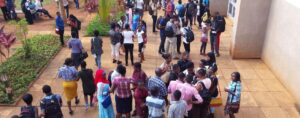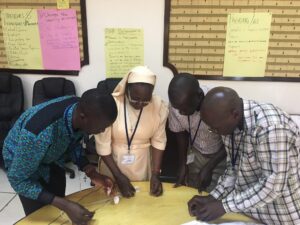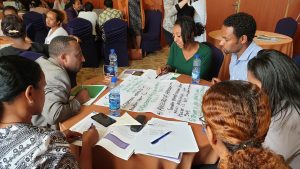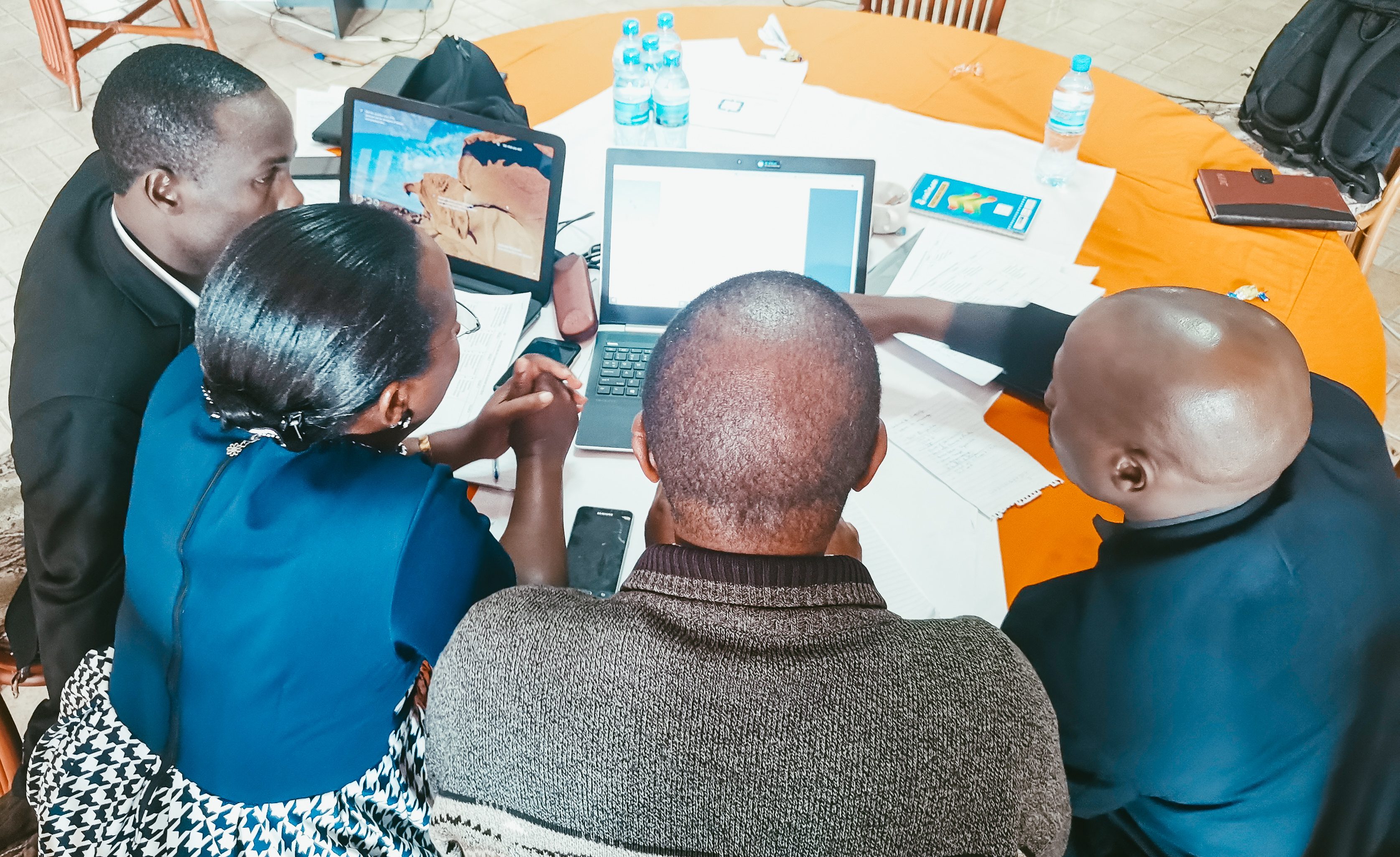
Transferring skills and knowledge for scale-up and sustainability
Tabitha Buchner discusses the role of “multipliers” in ensuring that work to transform higher education continues and grows beyond the lifetime of the TESCEA partnership.
The Transforming Employability for Social Change in East Africa (TESCEA) partnership is working with four universities in Tanzania and Uganda to help students’ university experience better prepare them with the critical thinking and problem-solving skills that they need to participate in the workplace and in wider society.
Within the three and a half years of the partnership, activities are taking place within selected courses in a sample of subject areas within the four institutions but one of the main goals of TESCEA is the scale-up and sustainability of what we do. That means continuing beyond the lifetime of the funding for this piece of work, beyond the sample subject areas and courses and beyond the four universities.
To achieve this, the course redesign workshops, gender sensitization sessions, and the many other activities we are now running as a partnership should eventually be run by each of the partner universities independently. So, we had to find a way to transfer the knowledge and skills that were mostly with facilitators from AFELT (a Kenyan support partner in TESCEA) and INASP to the partner institutions themselves.
This is why we decided, at our Project Steering Group Meeting in March, to organize Training of Trainers workshops – one for transformative learning and course redesign methodology (led by AFELT) and one for gender sensitization and gender responsive pedagogy (led by INASP and Prof. Flora Fabian from the University of Dodoma). This was realised in June, when representatives from all four universities came together in Arusha, Tanzania, and were trained in the two respective areas.
As a result of this training, the partnership gained two sets of trained lecturers at each institution; we call them course redesign multipliers and gender multipliers. The next step was to involve them in workshop facilitation in a way that, eventually, they would be able to run these sessions by themselves.
At that time there were two rounds of course redesign workshops left (of the three planned for each university during TESCEA). We therefore took an incremental approach in the project design. First, the multipliers would act as co-facilitators in the second round of course redesign workshops, assisting AFELT and INASP in the planning and facilitation. In the last round, they would then take centre stage and AFELT and INASP would take on the assisting role. Learning from the experiences of multipliers in the second round of course redesign would feed into the role of multipliers in the third round.
Supporting the multipliers
To prepare the multipliers ahead of the second-round course redesign workshops, INASP held calls with the gender multipliers, while AFELT met up with all co-facilitators a day before each workshop. In addition to this, both sets of multipliers received facilitation notes and supporting material. Multipliers were then given different sessions to facilitate and played a big role when breaking out into smaller groups and supporting workshop participants in their course redesign process. Each small group had a course redesign multiplier and a gender multiplier who would ask their colleagues probing questions and give advice. At the end of each workshop day, a debrief with all facilitators was held to discuss improvements and the way forward and to check in with the multipliers. Then a week later, a debrief call was usually held to discuss any issues and to work on setting up the next workshop round.
We did not, however, come up with this whole approach straight away. With every workshop the TESCEA partnership holds we learn a lot and take those lessons into the next workshop. This, of course, means that the first and last course redesign sessions we ran were quite different from each other in how multipliers took part. There were some challenges as well; the multipliers were lecturers themselves and did not always feel comfortable telling their colleagues what to do straight away and fulfilling their tasks as multipliers on top of their normal duties as university staff wasn’t easy.
“I am proud to be in the team of multipliers, now I feel more confident to teach [transformative learning] and [problem solving]. In future workshops, I don’t see it necessary for AFELT to facilitate the [transformative learning] and [course redesign] workshops; I have the feeling that we can handle the workshops ourselves.” (Multiplier from Mzumbe University, Tanzania)
The way forward
The second round of course redesign workshops has now been completed and we are all working hard to make the third round even more successful. All multipliers will have a bigger role to play and they are ready to take on the challenge, as a survey we have sent out to them has shown. We have also learnt through the second round of course redesign how best to develop this approach within each institution, for example where more preparation would be helpful or where multipliers would like more feedback.
The positive impact of the Training of Trainers workshops can not only be seen in the course redesign sessions, but also in other areas of the project and the institutions themselves. At the University of Dodoma, the multipliers went on to train their fellow TESCEA team members on what they learned. Mzumbe University plans to send its multipliers to all three Mzumbe campuses at the start of the new semester. The multipliers from Gulu University and Uganda Martyrs University took a protagonist role in preparing their colleagues for their upcoming course redesign sessions in mini workshops. All the universities are also busy running gender sensitization sessions and mainstreaming gender in other aspects of university life, such as the review of institutional policies.
As a partnership, we are excited about what we learned in the last few months and about the ownership many of the multipliers have taken. A lot of work lies ahead, but the path for sustainability and scale-up of the TESCEA project has now been laid.
Watch this short video interview with one of the TESCEA multipliers, Computer Scientist Gloriana Monko from the University of Dodoma in Tanzania:
***
Transforming Employability for Social Change in East Africa (TESCEA) is helping young people in Tanzania and Uganda to use their skills and ideas to tackle social and economic problems. With partners in Tanzania, Uganda and Kenya, TESCEA supports universities, industries, communities and government to work together to create an improved learning experience for students – both women and men. This improved learning experience fosters the development of critical thinking and problem-solving skills, and allows for practical learning beyond the classroom that improves a graduate’s employability.
The TESCEA partnership is led by INASP (UK), working with Mzumbe University (Tanzania), University of Dodoma (Tanzania), Gulu University (Uganda), Uganda Martyrs University (Uganda), Association for Faculty Enrichment in Learning and Teaching (Kenya), LIWA Programme Trust (Kenya) and Ashoka East Africa (Kenya).
TESCEA is funded by the UK’s Department for International Development (DFID) as part of DFID’s SPHEIR (Strategic Partnerships for Higher Education Innovation and Reform) programme to support higher education transformation in focus countries in Sub-Saharan Africa, Asia and the Middle East.
To learn more about TESCEA, click here.

 Previous Post
Previous Post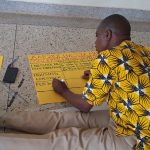 Next Post
Next Post